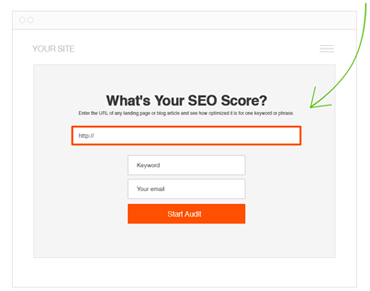Measuring SEO Performance: A Guide to Tracking Your Digital Success
In the dynamic world of search engine optimization (SEO), understanding how your efforts translate into tangible results is crucial for making informed decisions and optimizing your strategy.
Measuring and tracking SEO performance evaluates your SEO campaigns’ effectiveness and identifies improvement areas.
Why Measuring SEO Performance Matters
Regularly monitoring your SEO performance provides valuable insights into the effectiveness of your strategies, allowing you to:
- Assess the impact of SEO on your website’s visibility and traffic: Track metrics such as organic traffic, rankings, and click-through rates to gauge the success of your SEO efforts.
- Identify areas for improvement: Analyze your performance data to pinpoint areas where your SEO efforts can be refined and enhanced.
- Demonstrate the ROI of SEO: Provide concrete evidence of SEO’s value to your business, justifying investments and resource allocation.
- Make data-driven decisions: Base your SEO strategy on real-world performance data rather than assumptions or gut feelings.
Key SEO Performance Metrics to Track
Numerous metrics can be used to evaluate SEO performance, but some of the most essential ones include:
- Organic traffic: The total number of visitors who arrive at your website from search engine results.
- Rankings: The positions your website ranks for specific keywords in search results pages (SERPs).
- Click-through rate (CTR): The percentage of users who click on your website link in SERPs.
- Conversion rate: The percentage of visitors who take a desired action on your website, such as purchasing or signing up for a newsletter.
- Domain authority: A measure of a website’s overall authority and trustworthiness in the eyes of search engines.
- Backlinks: The number of links from other websites pointing to your website, indicating its relevance and authority.
Measuring SEO Performance Effectively
To effectively measure SEO performance, utilize a combination of tools and techniques:
- Google Search Console: Provides insights into search traffic, rankings, and keyword performance.
- Google Analytics: Tracks website traffic, user behavior, and conversion rates.
- Rank tracking tools: Monitor keyword rankings over time and identify trends.
- Backlink analysis tools: Analyze the quality and quantity of backlinks pointing to your website.
Web analytics platforms: Gather comprehensive data on website traffic, user engagement, and conversion paths.
Interpreting SEO Performance Data
When analyzing SEO performance data, consider the following factors:
- Industry benchmarks: Compare your performance to average metrics within your industry to assess your relative standing.
- Historical trends: Analyze changes in performance over time to identify patterns and trends.
- Competitor analysis: Evaluate your competitors’ performance to identify areas for improvement and potential strategies for outpacing them.
- Seasonality and external factors: Consider the impact of seasonal fluctuations, algorithm updates, and industry trends on your performance.
Taking Action Based on SEO Performance Data
Once you’ve analyzed your SEO performance data, use it to inform your strategies and make actionable changes:
- Refine your keyword strategy: Identify underperforming keywords and prioritize those with higher search volume and conversion potential.
- Enhance content quality and relevance: Create engaging, informative content that aligns with search intent and user needs.
- Improve technical SEO: Optimize website speed, mobile-friendliness, and structured data markup.
- Build high-quality backlinks: Engage in link-building activities to earn backlinks from reputable websites.
- Monitor and adapt continuously: Regularly review your performance data and adjust your strategies as needed.
Remember, SEO is an ongoing process that requires continuous monitoring, evaluation, and adaptation. By effectively measuring and tracking your SEO performance, you can gain valuable insights, optimize your strategies, and achieve your digital marketing goals.
 November 16, 2023
November 16, 2023


